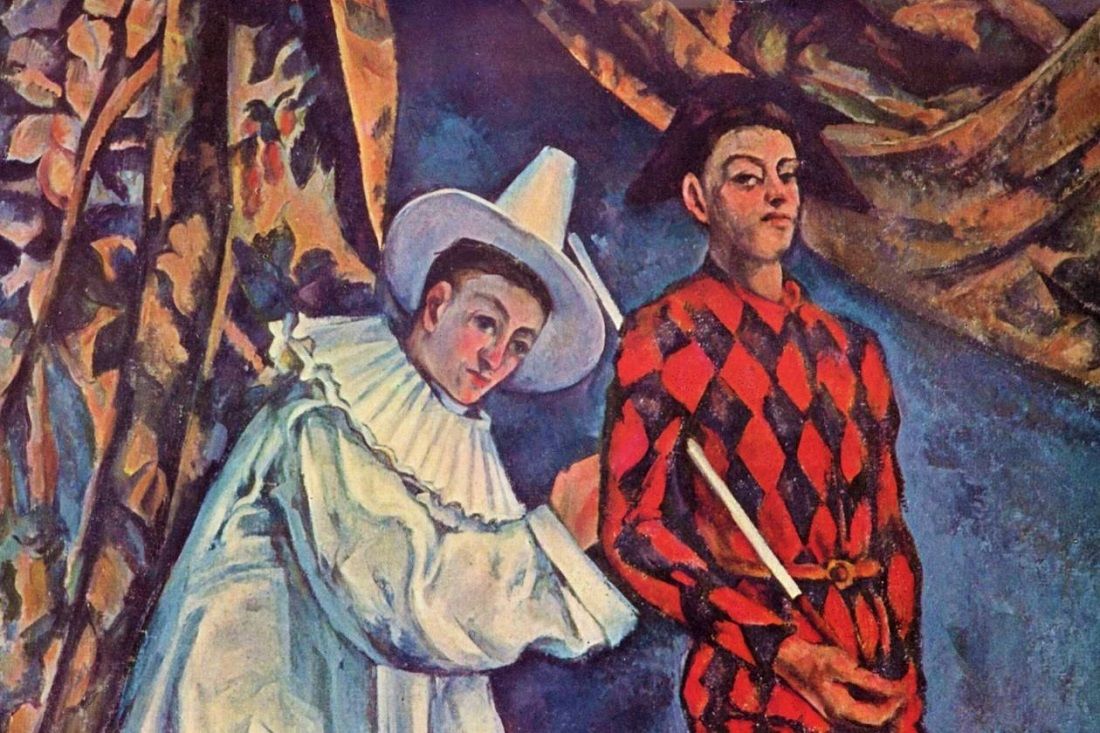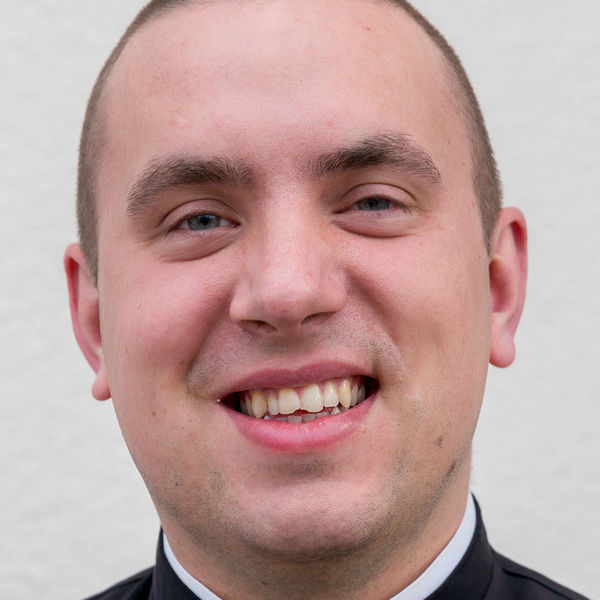A friend of mine, a young mother, recently wrote me to ask me a question about prayer. Are not most of our prayers stupid and pointless? She recounted how she had locked her keys and children in the car, and found herself praying, "God, please may my husband be able come quickly so I can take care of the screaming baby." But of course he did not come any quicker than the car and speed of traffic and nature of mobile bodies etc. determined. So why ask God about this at all? Is this not just useless chatter?
How should one respond to such a question? Certainly, I think that there can be a great deal of stupidity in prayer. Prayer begins in pointlessness and stupidity, "for we do not know how to pray as we ought" (Rom 8:26). But prayer is a path, the stupidity and pointlessness can be a step toward a deeper kind of prayer. Aquinas compares asking things of other human beings and praying to God (Compendium of Theology II,2). When we ask a human being for something we do so 1) in order to let them know what we want, 2) in order to move their heart to want to give us what we want. Moreover, 3) it presupposes some kind of friendship between us. But God already knows what we want, and has decided already from all eternity to give it to us. Nevertheless, He wants to give it to us through prayer, because this will dispose us to receive it from him properly:
Prayer, then, for obtaining something from God is necessary for man on account of the very one who prays, that he may reflect on his shortcomings and may turn his mind to desiring fervently and piously what he hopes to gain by his petition. In this way he is rendered fit to receive the favor.
Prayer disposes us to receive the gifts of God, and thereby it increases our friendship with him:
But when we pray to God, the very prayer we send forth makes us intimate with Him, inasmuch as our soul is raised up to God and converses with Him in spiritual affection, and adores Him in spirit and truth.
The more we grow in prayer, therefore, the more it forms and orders our desires. As St. Thomas teaches in his interpretation of the Lord's Prayer in the IIa-IIae, this prayer orders our desires. It forms our hearts to desire what will truly make us happy. That is, it teaches us to to desire consciously what our hearts have been made for all along.
First, it teaches us to desire the final cause and goal of all things: that God’s name be hallowed (glorified). Then, to desire that we attain to that final goal (Thy Kingdom come). Then, to desire the means that lead us to that goal. First the direct means, namely that we do his will (Thy will be done on earth as in Heaven). And then the indirect means: everything that helps us on our way towards the final goal (give us this day our daily bread). That is, both supernatural helps (the sacraments, especially the Eucharist), and natural helps (ordinary bread, and everything that sustains life and enables us to live virtuously). It is under this petition that things like my friend’s husband coming quickly so that he could help their children are included. It is good to pray for such temporal aid, insofar as it is ordered to the true happiness of oneself and others. Finally, we are taught to desire that all the obstacles in our way toward the final goal be removed: sin, temptation, and all other ills.
Fr. Herbert McCabe, O.P., used to say, that it is necessary to pray for what you really want— not to dissemble your desires. Distraction often comes, because we dissemble and do not recognize what we really want. And because at the beginning of spiritual life, our desires are often stupid and pointless, our prayers too will be stupid and (apparently) pointless. But those who persevere in prayer will find that God transforms their desires. And the more they are transformed, the more the stupidity and pointless will give way to a real communion with God:
We know that the whole creation has been groaning in travail together until now; and not only the creation, but we ourselves, who have the first fruits of the Spirit, groan inwardly as we wait for adoption as sons, the redemption of our bodies. For in this hope we were saved. Now hope that is seen is not hope. For who hopes for what he sees? But if we hope for what we do not see, we wait for it with patience. Likewise the Spirit helps us in our weakness; for we do not know how to pray as we ought, but the Spirit himself intercedes for us with sighs too deep for words. And he who searches the hearts of men knows what is the mind of the Spirit, because the Spirit intercedes for the saints according to the will of God (Rom 8:22-27).
The more God raises and purifies our prayer, the more it will be a participation in the life of his eternal Son. As Fr. McCabe puts it in God Matters:
Our stance in prayer is not simply, or even primarily, that of the creature before the creator but that of the Son before the Father. At the most fundamental level, the level which defines prayer as prayer, we receive from the Father not as creatures receiving what they need to make up their deficiencies, but as the Son eternally receives his being from the Father.[1]
So, I wrote to my friend that she should be patient with the stupidity and pointlessness. That God loves her more than she loves her own children, and that even as she is patient with their infantile stupidity, so he is patient with hers, and will lead her by little steps to an ever deeper prayer that will transform her life.
It can be dangerous to appeal too much to the imagination in thinking about God. God is the immutable and impassible ocean of being, who does not share in any of the limitations of his creatures. And yet, the comparison between God’s love and the love of parent for their children is on that Our Lord Himself puts great emphasis on in the Synoptic Gospels. He himself appeals to our imaginative grasp of parental love to illuminate the nature of prayer. In Matthew He speaks of the good gifts that even we, malicious small-hearted creatures give our children:
Ask, and it shall be given you; seek, and you shall find; knock, and the door will be opened for you. Everyone who asks receives, and he who seeks finds, and for him who knocks the door will be opened. Or what man is there among you, whose son shall ask him for bread, that will give him a stone? Or ask him for fish, that will give him a snake? If then you, who are evil, know how to give good gifts to your children, by how much more your Father who is in heaven will give good things to those who ask him. (Matt 7:7-11)
Just as we give good gifts to our children, so God gives good things to us, his children. The parallel passage in the Gospel of Luke does not speak of God giving us good things, but rather the Holy Spirit:
Or who is there among you whose son will ask his father for a fish, and he will give him a snake? Or ask for an egg, and will give him a scorpion? If then you, who are evil, know how to give good gifts to your children, by how much more your Father in heaven will give the Holy Spirit to those who ask him. (Luke 11-13)
The first gift that parents give their children is their love. It is because they love their children that they give them all other good gifts. It is because they love their children that they do not give them serpents or scorpions, but eggs and bread. The Holy Spirit is the eternal expression of the love of Father and Son. He is, as it were, an infinite sigh of love: a sigh expressing the single and eternal action of love that is the life of God. In giving us the Holy Spirit, the Father gives us his love. It is because he loves us that God gives us every other good gift. It is because he loves us that he conforms us to the image of his Son, the consubstantial Image of His Divine beauty and goodness and truth.
And it is because he loves us that he gives us even the temporal goods that strengthen us and enable us to realize that image in out lives. Therefore, it is through giving us the Spirit that God gives us everything else: the answers to all our prayers, and even our prayer itself. As Fr. McCabe puts it, we are in a way possessed by the Spirit in prayer: "All our prayer is, in a very precise sense, in Spirit and in truth. For us to pray is for us to be taken over, possessed by the Holy Spirit which is the life of love between Father and Son."[2]
This is the gift of God, the Holy Spirit, and it is what our hearts truly desire.
[1] Herbert McCabe, O.P., God Matters (London: Continuum, 2005), 220.
[2] Ibid.


